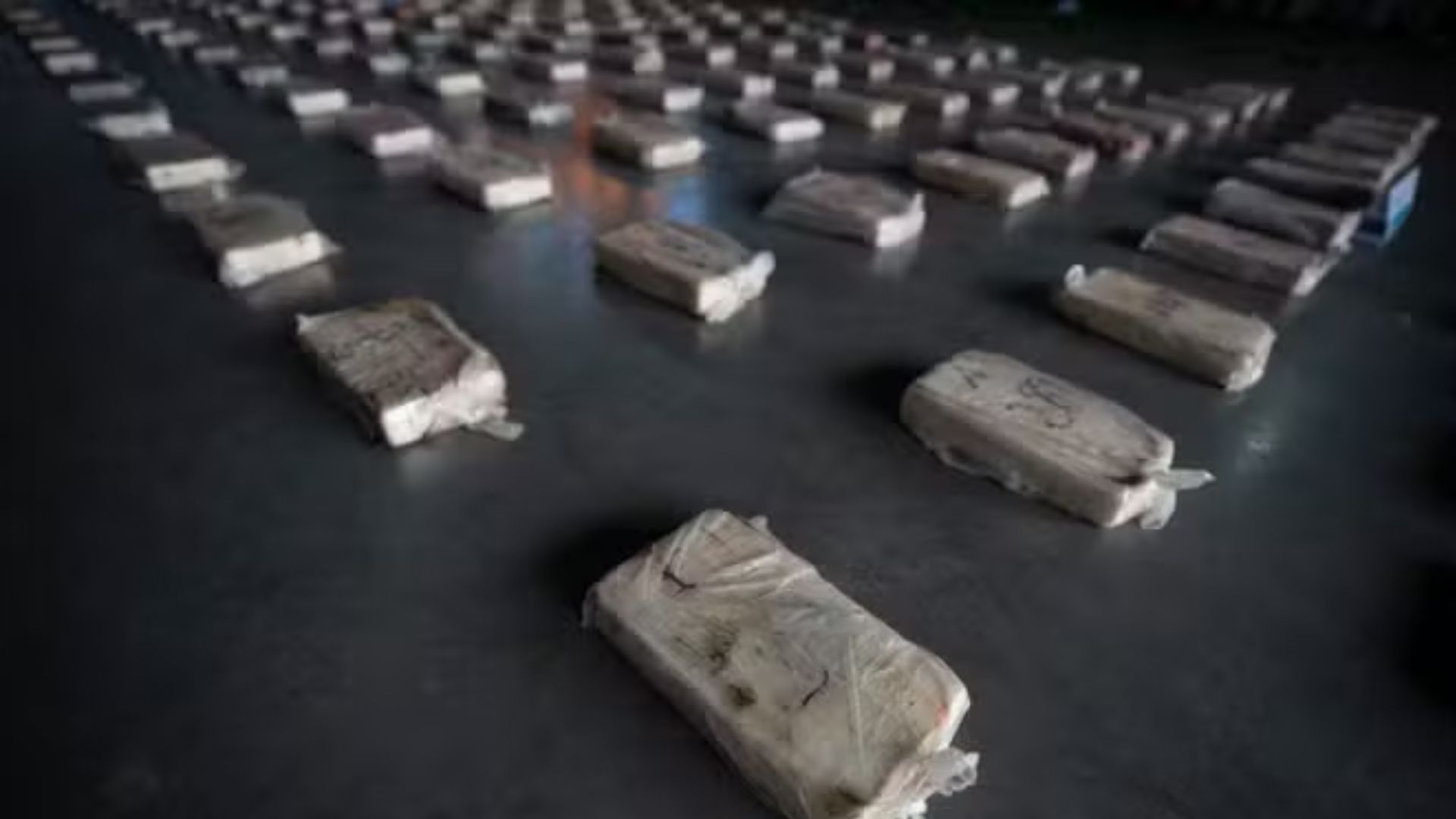State
Colombian national sentenced to 150 months in a United States federal prison after admitting to a conspiracy that aimed to import tons of cocaine across international borders

New York – A Colombian man linked to a large-scale cocaine trafficking plot has been sentenced in New York federal court, marking another significant victory in the United States’ efforts to combat the international drug trade. Alberto Alonso Jaramillo Ramirez, 56, of Medellín, was handed a 150-month prison term after pleading guilty to conspiring to import vast amounts of cocaine into the United States. The sentencing took place before U.S. District Judge Lewis J. Liman, who also imposed four years of supervised release to follow the prison term.
The announcement was made by U.S. Attorney for the Southern District of New York, Jay Clayton, who underscored the severity of the case. “Our fight against the flood of dangerous drugs from Colombia, Venezuela, and Mexico is about protecting our children and our communities,” Clayton said. “Jaramillo Ramirez conspired to traffic massive amounts of cocaine into our country, working with paramilitaries. New Yorkers want him and others like him put out of business.”
A plot tied to violent groups
Court filings revealed that Jaramillo Ramirez’s criminal activities were deeply intertwined with the Fuerzas Armadas Revolucionarias de Colombia, or FARC, a paramilitary group long involved in violent conflict with the Colombian government. Beyond its political agenda, the organization has also been one of the dominant players in cocaine production and distribution, with much of its supply ultimately finding its way into the United States.
Investigators say Jaramillo Ramirez and his co-conspirators attempted to broker deals that would establish a direct pipeline for moving cocaine from Venezuela into the United States. Believing he was negotiating with high-ranking members of a Mexican drug cartel, Jaramillo Ramirez offered to leverage his Colombian contacts to provide steady access to large quantities of cocaine. Unbeknownst to him, those “cartel members” were in fact confidential sources working under the direction of the U.S. Drug Enforcement Administration.
From sample shipments to mass distribution plans
The investigation began to gain momentum in late 2021, when Jaramillo Ramirez arranged for the sale of a five-kilogram sample of cocaine to undercover sources. Testing later confirmed the shipment’s purity to be between 86.6% and 89.1%—an unusually high level that demonstrated both the quality and seriousness of the operation. That cocaine originated from a FARC-controlled farm near Medellín.
The sample deal was only the beginning. According to prosecutors, Jaramillo Ramirez was laying the groundwork for a much larger partnership with the Mexican organization, which envisioned shipments of roughly half a metric ton of cocaine per week bound for U.S. markets. His role, investigators said, was not only to secure reliable suppliers but also to provide logistical support, including transport routes and security measures.
Those plans never came to fruition. In February 2022, Colombian authorities, acting on a U.S. request, arrested Jaramillo Ramirez as negotiations for the larger deal were underway. After extensive legal proceedings, he was extradited to the United States in March 2024 to face prosecution.
Sentencing and co-defendants
Jaramillo Ramirez’s punishment follows earlier sentences handed down to two of his associates. In April 2024, both Libia Amanda Palacio Mena and Alvaro Fredy Cordoba Ruiz received prison terms of 168 months each for their roles in the conspiracy. Together, the three represent the core group prosecuted in this case, though authorities have indicated that additional individuals remain under investigation.
While Jaramillo Ramirez’s sentence of 150 months—just over 12 years—was slightly shorter than those of his co-defendants, the court emphasized that the length still reflects the seriousness of the offense and the danger posed by international drug trafficking networks.
International collaboration
The case also highlights the global coordination required to confront narcotics organizations. U.S. Attorney Clayton praised the “outstanding investigative work” of multiple agencies, including the DEA’s Special Operations Division Bilateral Investigations Unit, the DEA Bogotá Country Office, the Justice Department’s Office of International Affairs, and the Narcotic and Dangerous Drug Section’s Office of Judicial Attaché in Bogotá. The cooperation of Colombian law enforcement and judicial authorities proved critical in securing both the arrest and eventual extradition of Jaramillo Ramirez.
Assistant U.S. Attorneys Nicholas S. Bradley, Kaylan E. Lasky, and Kevin T. Sullivan of the Southern District’s National Security and International Narcotics Unit led the prosecution. Their work built a case that detailed not only Jaramillo Ramirez’s individual conduct but also the broader network of ties between Colombian suppliers, Mexican cartels, and potential U.S. distribution channels.
A broader message
The case against Jaramillo Ramirez is one of many in recent years where U.S. authorities have targeted foreign nationals tied to drug trafficking groups that operate far beyond America’s borders but whose actions fuel domestic addiction and violence. By securing lengthy prison terms, federal prosecutors hope to send a clear message to those considering similar ventures: U.S. law enforcement will pursue such cases relentlessly, regardless of where the crimes are planned.
The sentencing underscores how drug conspiracies today are not confined by geography. They involve shifting alliances among groups in Colombia, Venezuela, and Mexico, operating across continents and oceans. Yet, as this prosecution shows, coordinated international enforcement efforts can disrupt even the most ambitious smuggling plans before they reach American shores.
For Jaramillo Ramirez, the outcome is clear: more than a decade behind bars, followed by supervised release, and a tarnished legacy tied to a failed conspiracy. For U.S. officials, it is one more step in the ongoing battle against global narcotics networks that threaten communities across the country.

-

 Local News12 months ago
Local News12 months agoNew ALDI store close to Rochester to begin construction in late 2025 or early 2026
-

 Local News12 months ago
Local News12 months agoRochester Lilac Festival announces exciting 127th edition headliners
-

 Local News10 months ago
Local News10 months agoCounty Executive Adam Bello and members of the county legislature celebrate exceptional young leaders and advocates at the 2025 Monroe County Youth Awards
-

 Local News10 months ago
Local News10 months agoThe 2025 Public Market Food Truck Rodeo series will begin this Wednesday with live music by the Royal Bromleys